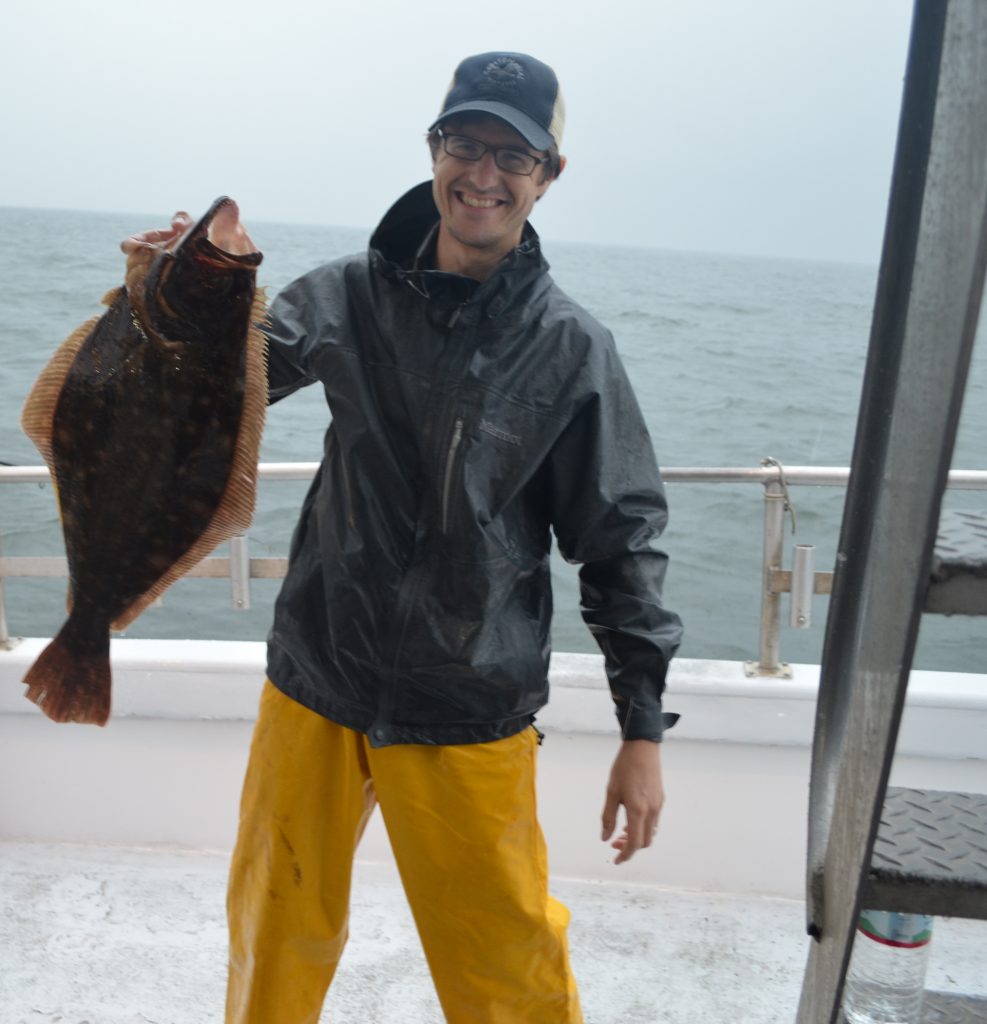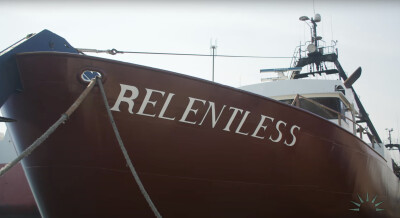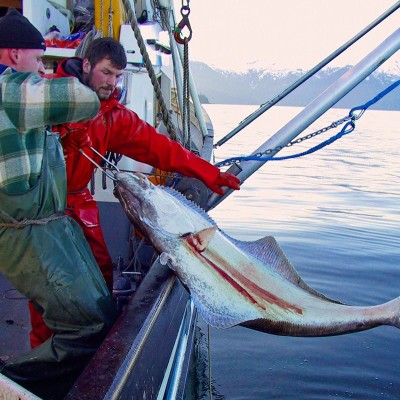Summer flounder landings are worth around $26.5 million when landed at docks in the Mid-Atlantic states, but the growing stock of flatfish generates more than $259 million in total economic impact, according to a new study from the Science Center for Marine Fisheries.
For years, “of all fishery species managed by MAFMC (Mid-Atlantic Fishery Management Council) the summer flounder is one of the most contentious,” notes Murray, who is also associated with the Virginia Institute of Marine Science.
“Stock status has recently improved from overfished – to less or even not so – with the inclusion of recent MRIP (Marine Recreational Information Program) data on recreational fishery landings. A substantial increase in biomass estimates is reported in the most recent assessment, and there are expectations of continued debate over division of quota among commercial and recreational fisheries. Absent from this debate is an economic assessment for the commercial sector of the fishery,” Murray wrote in the introduction to his report, which aims “to provide a current market and economic impact assessment specifically for the Mid-Atlantic summer flounder fishery.”
Historically the Mid-Atlantic council has used a 60 percent commercial, 40 percent recreational goal for allocating the annual summer flounder quota. In years of declining stock assessments that’s led to sharp cutbacks for both sectors.
“The report comes at an important time for the fishery,” according to a statement from the science center, a cooperative research institute with representation from the industry, universities and NOAA.
“The most recent summer flounder assessment found that flounder are not overfished and are not experiencing overfishing. Regulators at both the Mid-Atlantic Fishery Management Council and the Atlantic States Marine Fisheries Commission are currently considering how to reallocate flounder quotas as part of an update to the summer flounder management plan.”
Meanwhile, fishermen and coastal communities are dealing with continuing fallout from the covid-19 pandemic. The report provides new economic data, at a time when the seafood industry is undergoing major dislocations from continued restaurant closings.
The Murray report drew on 2018 NMFS landing data and 2019 interviews with industry sources involved with summer flounder. Those findings showed a 50/50 split between food service and retail for how flounder got to consumers, but Murray notes that “2020 impacts of the coronavirus closures are now known to have significantly shifted the final distribution of seafood products at the retail level; away from foodservice toward retail.”
“This analysis demonstrates that such reallocations would create significant changes on ultimate product values and associated economic impacts,” the report concludes. “As such, this model will prove useful in assessing a changing seafood marketplace as well as alterations in harvest conditions in the future.”
“Summer flounder is one of the cornerstone fisheries of our community,” said Greg DiDomenico, chairman of the Science Center for Marine Fisheries. “It’s important that we’re able to quantify exactly how important it is. It will help us better manage this species and maintain the health of our coastal communities.”







